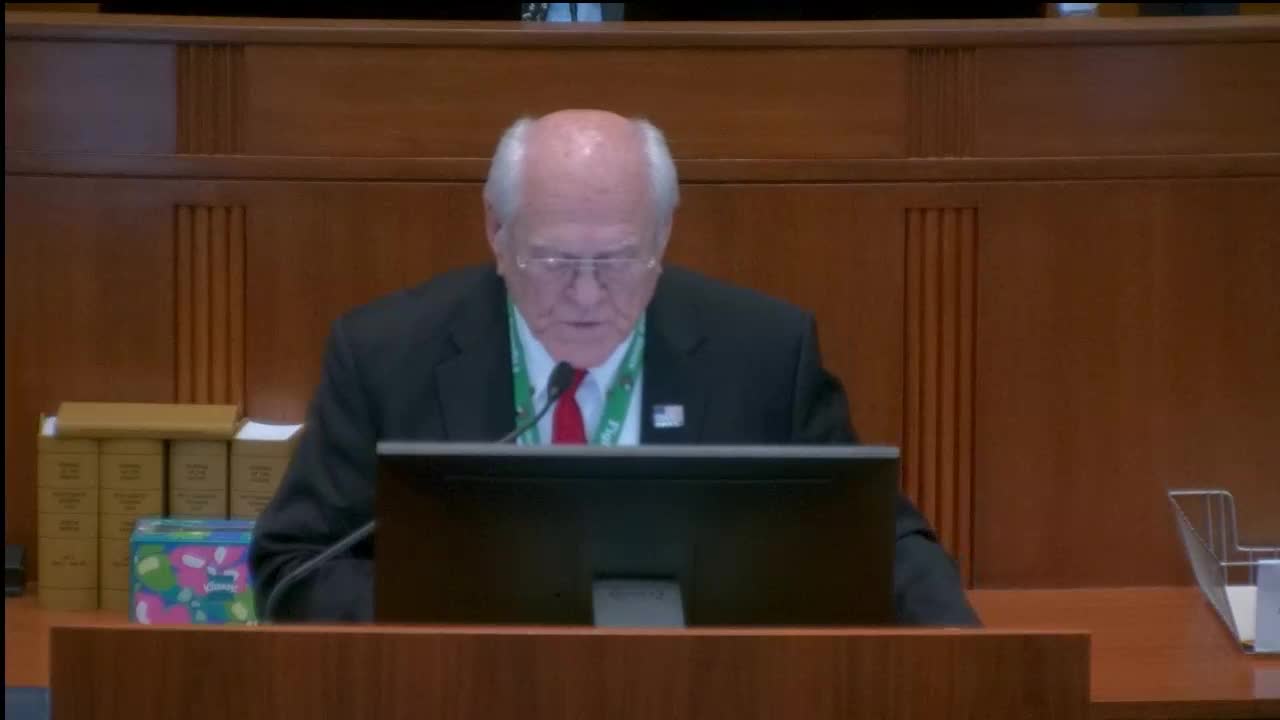House rejects conference report on campaign‑finance transparency bill after floor fight over process
Get AI-powered insights, summaries, and transcripts
Subscribe
Summary
Lawmakers rejected the conference committee report on House Bill 13‑77 after extended debate about whether the Senate 'hog‑housed' the bill and whether conference conferees defended the House position; the rejection leaves campaign‑finance reform unresolved.
BISMARCK, N.D. — The North Dakota House on May 2 rejected the conference committee report on House Bill 13‑77, a campaign‑finance transparency measure, after several members objected that the Senate substituted its version and that House conferees failed to defend the House position.
Representative Porter, presenting the conference committee report, described the bill as a rewrite and consolidation of campaign‑finance reporting requirements that raises the individual reporting threshold from $200 to $250, requires beginning and ending balances, clarifies deposit date reporting, and instructs the Secretary of State to host an electronic reporting system. "It is going to require a beginning and ending balance be reported," Porter said, adding the bill codifies an Attorney General opinion on federal PACs and includes an exemption for the governor's residence from the prohibition on campaigning on state property. Porter moved adoption of the conference committee report.
The nut graf: debate centered less on technical reporting changes than on process: several lawmakers said the Senate "hog‑housed" the bill — substituting its version onto another House bill — and that conferees did not adequately defend the House's earlier GVA committee work and public‑hearing record. Opponents argued the public and original sponsor did not get proper input and warned about criminal penalties and potential deterrence to new candidates.
Members who opposed the report cited the bill's path and committee representation. Representative Fraley and Representative Shower said the bill before the House had not gone through the same public‑hearing process as the earlier House/GVA proposal; Shower said the bill had been ‘‘hog‑housed’’ by the Senate and that conferees lacked subject‑matter background. Representative Vetter questioned which House positions the conferees defended; Representative Vetter said, "I did not see a single position in which the house was defended on our positions." Representative D. Ruby, who said the bill originally carried his name, said he was not consulted about substantive changes and requested a roll‑call vote to register opposition to what he called an altered product.
Supporters said the bill modernizes reporting, consolidates chapters of the Century Code, and makes filings easier for candidates and the public. Representative Porter and other conferees argued the electronic system and clarified thresholds will increase transparency while protecting sub‑$250 transactions from public disclosure.
The clerk recorded a final vote rejecting the conference committee report; the clerk announced the vote as 23 yea, 60 nay and the motion failed. The report was rejected, leaving campaign‑finance reform unresolved for now and likely to return to the legislative process for further negotiation.
Ending: Because the conference report was rejected, the House may appoint new conferees or continue negotiations with the Senate; the bill's effective date language presented on the floor set implementation for Jan. 1, 2026, for reporting changes noted by supporters.
